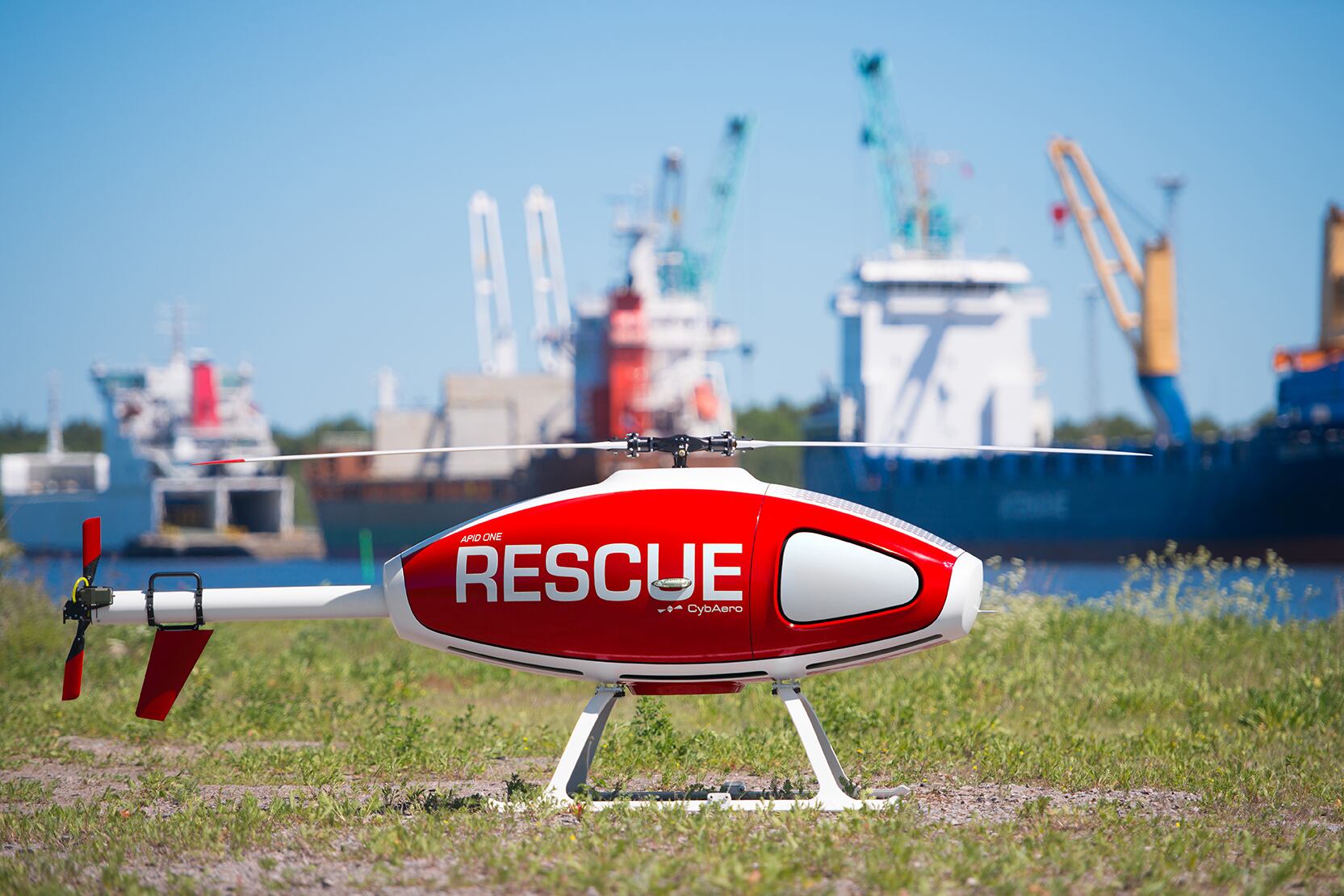HELSINKI ― Following its failed attempt to seal a deal with China for unmanned aerial systems, compounded by long-term funding problems, the largest military and security drone producer in Sweden has filed for bankruptcy.
CybAero’s board opted to file bankruptcy papers with Linköpings District Court after the Nasdaq First North stock exchange in Stockholm halted all trading in the company’s shares on June 15. The Exchange said it was troubled by CybAero’s uncertain financial position.
“In the three months as CEO of CybAero, I have worked closely with my colleagues in an effort to do everything possible to prevent the situation we are in today,” CybAero’s CEO Tommy Magnusson said.
CybAero’s management team, which only recently completed a companywide reorganization, had explored a range of commercial options to strengthen its order books and improve its cash flow.
RELATED

“We have continuously implemented quality measures. In parallel, we have investigated a number of possible options, while funding has been close to hedging on several occasions. Operational activities continued, and several new business opportunities were opening up to us. I hope that CybAero will be rebuilt under the leadership of new owners after bankruptcy,” Magnusson said.
What happened with the sale to China?
CybAero had invested heavily to break into the Asian market. The company’s economic fortune began to wane after Sweden’s Inspectorate of Strategic Products, or ISP, reversed a decision to grant CybAero clearance to export an unmanned helicopter system demonstrator to China.
The ISP cited “foreign and security policy” for its decision. The license reversal revealed the ISP’s concerns about the potential misuse of Swedish drone technology by AVIC, the Chinese research institute that contracted to test the CybAero helicopter drone system as part of an option to purchase 20 units.

In addition, the ISP questioned the intended use of CybAero’s helo drone by AVIC. The ISP, underlining the potential high-risk nature of the agreement, noted that the drone contained embedded technologies that might be diverted by AVIC to military actors in China. Such an event would be outside the realm of CybAero’s agreement with AVIC, the ISP concluded.
Money problems
The funding side of CybAero’s operations have fluctuated widely since January 2017. The company’s finances improved in July 2017 when the Dubai-based investment fund, Bracknor, signed a debt-refinancing arrangement with CybAero to ease the company’s acute need for working capital to support product development, production and export operations.
The financial solution agreed under the deal comprises a $5.25 million capital injection in the form of seven convertible loans to CybAero. Each loan varied in size from $850,000 to $650,000.
Subversive Capital, a U.S.-base venture capital firm specializing in growth investments, has subscribed for 10 percent of all convertible loans and warrants endorsed by Bracknor.
Prior to the refinancing deal, Subversive Capital controlled a 5.9 percent shareholding in CybAero. This positioned Subversive Capital as the second-largest share owner in CybAero after the Swedish banking-insurance group Avanza, which held 9.1 percent of all shares in the drone maker.
Indications that CybAero’s operating situation had regressed emerged in mid-May when trading in the company’s shares were temporarily suspended on Nasdaq First North. The exchange responded to uncertainty over negotiations, led by CybAero to find a new refinancing solution.
CybAero had provisionally negotiated a financing solution with the Luxembourg-based European High Growth Opportunities Securitization Fund, or EHGO, to raise $6 million in the form of 13 convertible loans. The EHGO had hired the London-based Alpha Blue Ocean Advisors to mediate a deal. The first tranche in this solution involved a bridge loan amounting to $227,000.
Nasdaq First North rejected this first tranche arrangement and insisted that, in order for trading in its share to resume, CybAero needed to place a minimum of $114,000 in escrow on a authorized bank account. Moreover, Nasdaq First North launched an investigation to determine if the negotiated financing solution violated stock exchange rules.
The concerns raised by Nasdaq First North were compounded by rapid senior-level management changes at CybAero. Johan Ahlström resigned as CEO of the company in March after taking up the post in January. Ahlström had replaced Mikael Smith, who was appointed CybAero’s CEO in September 2017.
Gerard O'Dwyer is the Scandinavian affairs correspondent for Defense News.








